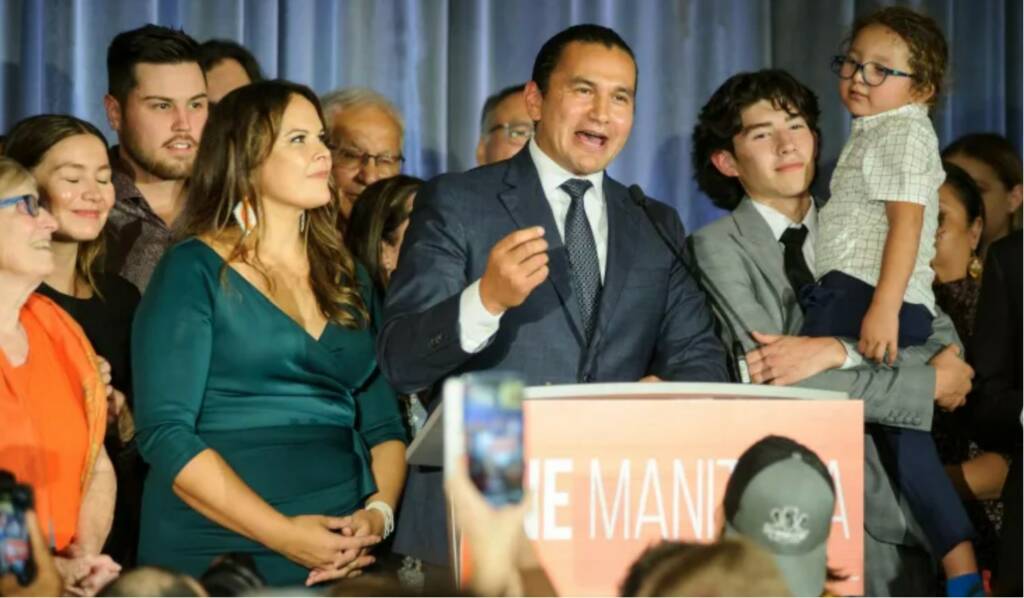Manitoba’s political landscape has long been marked by a thriving under conservative leadership. Yet, in a surprising turn, the shift to the NDP has ushered in unexpected developments, shaking the foundations of the province’s established political norms.
During the election campaign, the NDP made assurances to Manitobans. Yet, post-election, several promises have faced delays, modifications, or outright abandonment. This hints at the possibility that the NDP might not have genuinely intended to fulfil these commitments. The unfolding narrative paints a picture of a political plot twist, revealing less-than-appealing aspects of the newly elected government’s true colours.
Join us on Telegram: https://t.me/tfiglobal
The opposition Progressive Conservatives (PCs) accuse the NDP of leaving farmers behind by excluding propane and dyed gasoline from the tax holiday. The PCs, backed by major agriculture organisations, call for extending the tax exemption to all forms of fuel, claiming the NDP’s approach is unfair to farmers who often use cheaper dyed gasoline.
The NDP recently enacted legislation aimed at temporarily lifting the provincial tax on gasoline, a measure initially pitched as universally applicable to all Manitobans during the campaign. However, upon closer inspection, the introduced legislation revealed numerous exclusions and exceptions. This has implications for specific groups such as farmers, individuals in the fishing industry, and those engaged in recreational activities, diluting the initially promised equal benefits.
“Politicians should take their promises seriously, but the economic circumstances have changed since the tax cuts were legislated,” reads the letter released by the Canadian Centre for Policy Alternatives and signed by the Manitoba Government and General Employees’ Union and CUPE Manitoba.
Read More: Manitoba chose NDP. Now their Healthcare is Cancelled
A notable omission from the upcoming tax changes is the abandoned proposal to increase taxes on high-income earners. In the 2019 election, Kinew’s New Democrats pledged a new tax bracket, imposing higher rates on incomes exceeding $250,000 annually.
However, this commitment was not revisited in the recent election campaign. Kinew emphasised the government’s focus on the impending tax adjustments, stating, “We’re just maintaining predictability for people who’ve already done their tax planning or financial planning for the year to come.”
Read More: Darkest Christmas in Canada ever!!
The Manitoba Progressive Conservatives have been scrutinising the NDP for this perceived breach of commitment, advocating for amendments to align the legislation with the initially pledged inclusive approach.
Progressive Conservative Finance Critic Obby Khan has voiced criticism against the NDP government’s recent announcement, accusing them of disseminating ‘doom and gloom’ to Manitobans. Khan emphasises that the government’s current focus falls short of addressing the pressing concern of affordability for Manitobans. According to Khan, the entire press conference centred around preparing Manitobans for anticipated deficits, tax hikes, and ongoing cuts, which he views as inadequate in addressing the core issue of financial strain on residents.
In a span of just one month, the NDP has seen a string of broken promises spanning healthcare, affordability, and justice initiatives. Some challenges may stem from the inherent difficulties of governance, while others appear fundamentally unrealistic, offering false hope to constituents.
Read More: $10 million sent to Iraq, because Trudeau CAN!
Following the healthcare setback, the NDP now introduces a tax initiative, further heightening concerns. Manitoba’s largest unions, expressed in an open letter by The Canadian Centre for Policy Alternatives, are apprehensive about the government’s ability to fulfil promises in light of recent financial data. The letter underscores that the pledged tax cuts might impede the government’s objectives in healthcare, class sizes, and homelessness.
Hence, the NDP faces growing scepticism about its capacity to deliver on its commitments, with unions highlighting potential impediments to key social goals.
Recommended Video:
